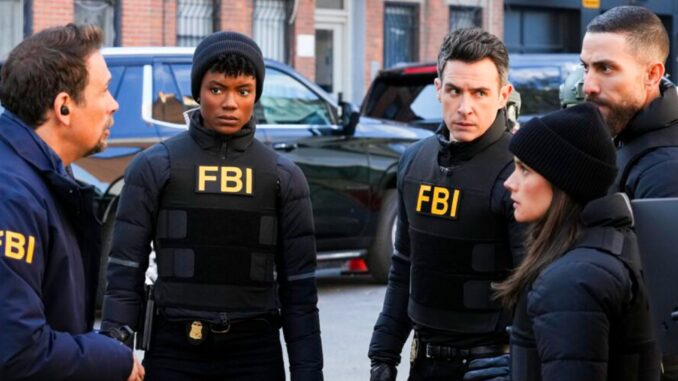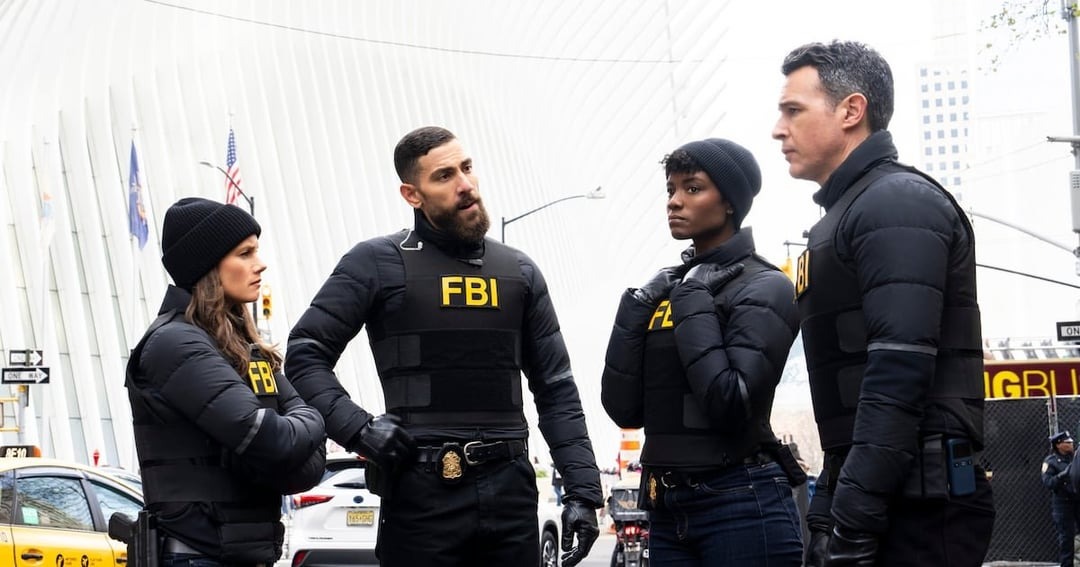
Introduction: When Crime Drama Meets Reality
If you’ve ever sat through an episode of CBS’s FBI, you’ve probably noticed something—it doesn’t feel like just another police procedural. Sure, there are car chases and shootouts, but underneath the action-packed surface lies a series deeply rooted in today’s social, political, and cultural issues. From terrorism to race relations, cybercrime to domestic extremism, FBI often feels like it’s been ripped straight from the headlines. So, how does FBI manage to echo real-world challenges so effectively? Let’s dive into how this high-stakes drama blends fiction with uncomfortable truths.
The Vision Behind FBI: Dick Wolf’s Signature Style
Realism Over Sensationalism
Dick Wolf, the creator behind Law & Order, brought the same sharp eye for realism to FBI. His aim? To blend dramatic tension with plausible storylines. Unlike more over-the-top crime dramas, FBI leans into reality—mirroring situations actual FBI agents might face.
Consulting the Real Experts
The show uses former law enforcement consultants to keep plots grounded. Every episode goes through a vetting process, ensuring that procedures, terminology, and investigation methods reflect real FBI operations.
Hot-Button Topics: A Crime Drama With a Conscience
Domestic Terrorism and Lone Wolves
Episodes dealing with domestic terrorism pull no punches. Whether it’s radicalized individuals, hate groups, or politically motivated violence, FBI paints a nuanced picture of threats that are sadly becoming more common in real life.
Immigration and Border Security
The show has addressed the controversial topic of immigration multiple times. Rather than painting characters as one-dimensional, FBI often highlights the moral complexity behind illegal entry, ICE enforcement, and political asylum.
Police Brutality and Racial Profiling
Some of the most gripping episodes tackle racial injustice head-on. The writers don’t shy away from depicting the tension between law enforcement and marginalized communities—making you question, reflect, and feel uncomfortable in all the right ways.
Cybercrime in the Digital Age
Hacking, Phishing, and the Dark Web
In a world where data breaches and ransomware attacks are daily news, FBI keeps its finger on the pulse. From teenagers hacking into banks to organized cybercrime rings, the show portrays the dark side of our interconnected lives.
Social Media’s Role in Crime
FBI episodes frequently explore how platforms like Twitter and Facebook can be breeding grounds for disinformation, recruitment for extremist groups, and real-time crime coordination.
Mental Health in Law Enforcement
Agents Struggling Behind the Badge
One of the more humanizing aspects of FBI is its depiction of agents’ mental health. The toll of the job is not sugarcoated—characters deal with PTSD, burnout, and moral dilemmas that eat away at their well-being.
Therapy, Trauma, and Emotional Suppression
By showcasing characters seeking counseling or grappling with emotional suppression, FBI deconstructs the myth of the “invincible agent.” It opens a broader conversation on how law enforcement officers are affected mentally by their work.
Women in the FBI: Strong, Complex, and Real
Breaking Gender Stereotypes
Women in FBI are not sidelined or typecast—they’re leaders, tacticians, and emotional anchors. Their presence reflects real changes in the FBI, where more women are rising through the ranks.
Balancing Career and Personal Life
The show highlights how female agents juggle high-stakes work with family, relationships, and personal growth—an honest reflection of modern professional struggles.

Representation Matters: Diversity in Casting
Reflecting America’s Melting Pot
The cast of FBI is intentionally diverse. Characters hail from different ethnic, religious, and socioeconomic backgrounds, providing viewers with a realistic portrayal of modern law enforcement teams.
Exploring Identity Through Character Arcs
Whether it’s Muslim agents dealing with Islamophobia or Black agents confronting systemic racism, the show weaves identity into character development—subtly but powerfully.
The Legal System: Justice Isn’t Always Black and White
Grey Areas in the Law
FBI doesn’t just chase criminals—it challenges viewers to think about justice. Is it always served? Should it be defined by the law or morality? These are recurring questions the series forces us to consider.
Prosecutorial Challenges
Legal complications, chain of evidence disputes, and courtroom setbacks are common—reminding us that catching the bad guy doesn’t always lead to conviction.
The Media’s Role in Modern Investigations
Influence of News and Public Opinion
Episodes frequently show how media coverage can hinder or help investigations. The show critiques sensationalism and the court of public opinion—an increasing reality for law enforcement today.
Leaks and Whistleblowers
Leaks to journalists and internal whistleblowing are treated as double-edged swords, showcasing the tension between transparency and operational security.
The Global Reach of Crime
International Terror Networks
The show covers threats that span borders, illustrating the FBI’s collaboration with global agencies like Interpol and MI6.
Trafficking and Cross-Border Investigations
From human trafficking to arms smuggling, FBI explores crimes that are deeply international in nature—proving the bureau isn’t just focused on domestic affairs.
Ethical Dilemmas in Undercover Work
Identity Crisis and Moral Blur
Agents working undercover face intense ethical challenges. The show digs into the emotional damage caused by prolonged deceit and moral compromises made for the greater good.
Technology vs. Humanity: Are We Losing the Human Touch?
Surveillance and AI in Investigations
While FBI uses modern technology in plotlines, it also raises concerns: Are we giving up too much privacy? Can algorithms replace human instinct?
Balancing Tech with Empathy
The show subtly warns viewers not to lean too heavily on machines. At its core, crime-solving still requires empathy, intuition, and human connection.
Conclusion: Why ‘FBI’ Hits So Close to Home
FBI isn’t just another crime show—it’s a reflection of our times. By weaving real-world issues into fictional plots, the show holds up a mirror to our society. It entertains, yes—but it also educates, provokes thought, and challenges norms. In a world where reality often feels stranger than fiction, FBI uses its platform to ground us, to make us think, and—sometimes—to make us uncomfortable in ways that matter.
FAQs
1. Is the CBS show FBI based on real cases?
Not directly. While it doesn’t adapt specific cases, FBI builds stories inspired by real-world threats and trends in law enforcement, creating plausible scenarios rooted in current events.
2. How accurate is the portrayal of FBI procedures in the show?
The show consults former FBI agents and law enforcement professionals, making its procedures relatively accurate for a network drama, though some elements are dramatized for entertainment.
3. Does the show take political sides?
FBI aims to present issues from multiple perspectives. While it does explore politically sensitive topics, it often avoids overt bias, leaving interpretation up to the audience.
4. Why does FBI focus so heavily on modern-day issues?
The creators want the show to feel relevant and meaningful. By tapping into real-world concerns—terrorism, cybercrime, racial tension—it offers more than just action; it creates conversation.
5. Are the characters in FBI based on real people?
No, the characters are fictional, but their backgrounds, struggles, and ethical dilemmas are drawn from scenarios actual agents might face, making them feel authentic and relatable.